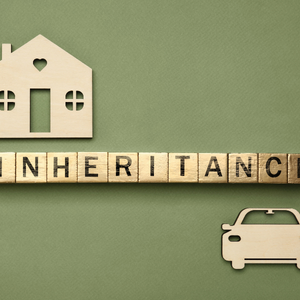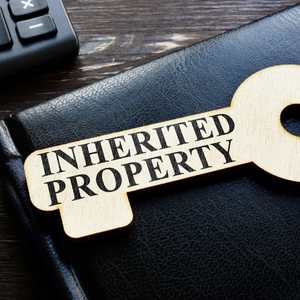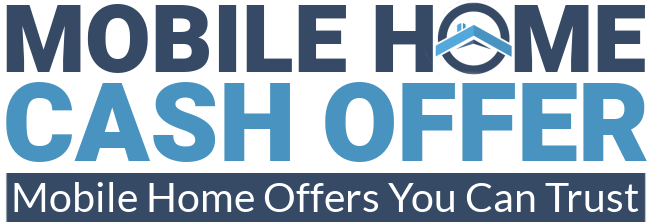
This guide will help you understand your options and make confident decisions about your inherited mobile home. We’ll also walk you through the entire process of selling an inherited mobile home, including the transfer of ownership, choosing the best selling method for your situation, and more! If you’re looking for a fast and hassle-free sale, companies like Mobile Home Cash Offer can provide quick cash offers and simplify the process.
First Steps After Inheriting a Mobile Home
When you inherit a mobile home, expenses like lot rent and maintenance costs begin, so your priority should be establishing legal ownership. First off, you need to check if you’re named in a will or trust; without one, you’ll likely need to go through probate court, which takes more time.
You also need to contact your local DMV or mobile home registration office, as mobile homes often have titles similar to vehicles, and you’ll need this paperwork to prove ownership before selling. Another thing to do is to tell the mobile home park manager about your new ownership status, as many parks have specific rules about inheritance and may require you to register as the new owner.
Locating and Verifying Mobile Home Titles
If you can’t find the title of your mobile home, look for clues in property tax records, insurance documents, or loan paperwork. These often contain the title number or VIN. Take this information to your state’s mobile home registration department for a replacement.
For older mobile homes, titles sometimes disappeared during previous sales. You might need to file for a bonded title or title recovery. Getting the title sorted early saves trouble when you’re ready to sell.
Can You Sell Your Inherited Mobile Home?
Yes, you can sell your inherited mobile home. But before you plant that “For Sale” sign, ensure you have the right to sell the place! You must check for liens, loans, or co-ownership issues that might affect the property. Most mobile homes can be sold without drama, but some situations can be problematic. If there’s still a mortgage, you’ll need to settle or get permission for someone else to take over payments. Those park managers might also have first dibs on buying the home before you can sell it to strangers.
Flip through that park lease agreement if the home sits in a community. Some parks are picky about who gets in. They might have age restrictions, income requirements, or other hoops for potential buyers. To avoid these hurdles, you can sell your mobile home for cash in Texas or nearby states through services that offer quick and straightforward transactions.
What It Means to You Financially When You Inherit a Manufactured Home
Before making any decisions, you need to know what it means to inherit a mobile home financially and consider the cost of moving a mobile home. The tax implications depend on when you sell, your sale price, and your state’s inheritance laws. In most cases, you’ll benefit from a “stepped-up basis.” This means you will only be taxed on gains above the home’s value at inheritance time, not what the deceased paid initially. We’ll share more on this in the next section.
Meanwhile, selling quickly might mean owing no taxes if the price matches the inherited value. This makes fast sales appealing to heirs who don’t want ongoing property responsibilities. To avoid these costs and sell without delay, you can sell your mobile home for cash in Montana or nearby states through services that offer fast, hassle-free transactions. If you keep the property, you’ll pay lot rent (if in a park), property taxes, insurance, and maintenance costs. These expenses add up while you decide what to do with the property.
Tax Implications When Selling Your Inherited Manufactured Home
You’ll likely owe less than expected, thanks to favorable tax rules for inherited property.
When you inherit a manufactured home, you receive a “stepped-up basis” equal to the home’s value at inheritance, not what your relative paid initially. So that 1985 double-wide your uncle bought for $30,000, if it’s worth $45,000 now, becomes your tax basis.
Capital gains tax only applies if you sell above the inherited value. If you sell that $45,000 home for $50,000, you pay tax on the $5,000 gain, not the entire sale price. Many heirs sell quickly at the inherited value and owe zero capital gains tax.
Estate Tax vs. Inheritance Tax

The estate pays the estate tax before distribution. The federal estate tax exemption exceeds $13 million per person in 2025, so most inherited mobile homes avoid estate tax entirely. Inheritance tax is what you might owe after receiving property. Only six states impose inheritance taxes: Iowa, Kentucky, Maryland, Nebraska, New Jersey, and Pennsylvania—most exempt spouses and children, with varying rates for other relatives.
Most inherited manufactured homes fall below the inheritance tax exemption thresholds. A $50,000 inherited mobile home rarely triggers significant inheritance tax obligations.
The Home Sale Tax Exclusion Opportunity
Move into your inherited manufactured home as your primary residence for at least two years so you can qualify for the home sale tax exclusion. When you sell, this allows up to $250,000 in tax-free gains ($500,000 for married couples). This strategy works well for inherited homes on private land with retired titles. You get free housing while setting up a potential massive tax exclusion.
The residence requirement is strict. You must live there as your main home for 24 months during the five years before selling.
Rental Income and Tax Considerations
Converting your inherited manufactured home into a rental property will give you taxable rental income but allow maintenance, repairs, insurance, and depreciation deductions. Depreciation deductions are also valuable. You can write off part of the home’s value annually, even if it maintains or gains value. However, selling rental property triggers depreciation recapture tax at 25% on previous depreciation deductions.
Keep detailed records of all rental expenses and improvements. These offset rental income and potentially reduce the tax burden at sale.
How to Sell an Inherited Mobile Home in a Park
Selling a mobile home in a community means the park manager holds half the cards. They influence who can buy your house and sometimes how much you can ask for it. You should start by reading that lease agreement. Many parks have “right of first refusal” clauses. This fancy language means you must offer the home to the park management first before selling to outsiders.
The park’s resident approval process might reduce your buyer pool. Age restrictions, income requirements, and background checks can also filter out potential buyers. Keep these in mind when setting your timeline and price.
How to Sell an Inherited Mobile Home on Private Land
If your inherited mobile home comes with its land, you’re fortunate. That’s because the land often outvalues the box sitting on it.
For the first order of business, determine whether the title is “retired.” Buyers love retired titles because they can get normal mortgages instead of painful chattel loans with high interest rates.
Retired vs. Unretired Titles

A retired title turns your mobile home into “actual real estate” with the stroke of a pen. This paperwork can seriously pump up your selling price. The retirement ceremony involved yanking off the wheels, slapping it on a permanent foundation, and filing forms with people who wear suits to work. If your inherited home missed this extreme makeover, just do it yourself. Yes, you’ll spend a few dollars more, but you’ll potentially get top dollar when you sell.
If you’re unsure about your title’s employment status, call your county tax collector. If you’re paying real property taxes instead of vehicle-style taxes, your title is probably retired.
What to Avoid When Selling an Inherited Mobile Home
Legal issues can pop up unexpectedly when you think you’ve got this inheritance thing figured out. These can turn your simple sale into a complex sale nobody asked for.
Co-heir Disputes
Nothing tests family bonds like shared inheritance. When multiple heirs inherit a mobile home, disagreements are inevitable. Some want to sell immediately, others want to rent it out, and that one cousin somehow thinks turning it into a café makes perfect sense.
You need to get everyone on the same page early with a written agreement. For truly sticky situations, paying for mediation costs before co-heirs turn lawyer-shopping may be worth it.
Proper Estate Documentation Requirements
The legal system has zero patience for “but everyone knows Uncle Bob wanted me to have it” arguments.
You’ll need the death certificate, the will (if one exists), and letters testamentary or letters of administration from the probate court. These make you the person with actual legal authority to sell.
Disclosure Obligations to Buyers
Honesty isn’t just good karma. It’s legally required when selling property. You must disclose known issues that affect the value of the mobile home, even when selling “as-is.”
You must create a written disclosure document listing everything you know about the property’s condition, even if you’ve never lived there. Include phrases like “to the best of my knowledge” when appropriate.
Common Title and Ownership Transfer Mistakes
Title issues top the list of why mobile homes are difficult to sell. Missing or incorrect VINs on paperwork can halt your sale. You must double-check all identification numbers against the physical tags before submitting anything.
Another classic issue is forgetting to record lien releases from previous loans. Even if the deceased paid off their loan years ago, without proper documentation, that lien lives on, and it will haunt your sale.
How to Sell Your Inherited Manufactured Home
Time to sell that inherited home? You’ve got options!
Traditional Real Estate Sale Process
Selling through a real estate professional takes longer but often leads to the biggest check at the finish line. However, the first hurdle is finding an agent who knows mobile homes. Many real estate pros specialize in traditional houses and treat mobile homes as a nuisance. It is essential to look for agents with manufactured home experience on their resumes.
Once you’ve found your agent, they’ll recommend a listing price based on comparable sales (not what your heart thinks it’s worth). Then comes the prep: cleaning, minor repairs, and maybe staging if the place looks like it’s been hibernating since 1987. We’ll share more tips on staging your mobile home later, so keep reading!
For Sale By Owner (FSBO)
Selling by owner saves on commission but turns you into a one-person marketing team, tour guide, and paperwork department. This option is not for everyone. The FSBO route demands you become an instant expert on pricing, marketing, showing, negotiating, and handling contracts. You’ll need to create listings, take decent photos, field inquiries, and screen potential buyers while maintaining the property.
Many FSBO sellers eventually list with agents after realizing the process involves more time and expertise than expected. That said, being patient, detail-oriented, and having good marketing skills can save thousands in commission fees.
Mobile Home Dealers
Some dealers buy used mobile homes to refurbish and resell. They know their market inside out but offer wholesale prices that reflect their need to profit after fixing the place up. Dealers typically offer quick transactions for homes in decent condition. They’re particularly interested in homes built after 1976 (when HUD standards took effect) and those under 20 years old.
The dealer option is meant for standard-sized homes without significant damage. They typically handle all paperwork and sometimes even disconnection and transport logistics if the house needs to be moved.
Selling a Trailer Home You Inherited to an Investor
Sometimes, selling traditionally has too many potholes. When simplicity of the sale weighs more than maximum profit, go for mobile home cash buyers. Investor buyers specialize in hassle-free purchases. They typically pay cash, buy “as-is,” and close on your schedule. You don’t need to do any repairs or cleaning.
However, this may mean a lower sale price than what the retail market might eventually bring. Investors need room to profit after handling all the headaches you’re avoiding. In other words, the price difference is your “sanity preservation fee.”
Top 7 Tips to Prepare Your Inherited Mobile Home for Maximum Value
You don’t need extreme renovations to make your inherited mobile home sellable. You only need to make strategic improvements that highlight the strengths and downplay the weaknesses of your wheel home.
- Fresh paint makes spaces better faster than anything else in the renovation toolkit. Neutral colors make rooms look larger and help buyers visualize their stuff in the space. Yep, it’s time to retire that electric lime green bedroom that Aunt Martha.
- Flooring comes next on the impact list. Worn carpet shows how “old and dirty” your mobile home is, even when it’s old. For truly disastrous floors, inexpensive vinyl plank flooring is suggested.
- Upgrade your lights! Good lighting makes small spaces feel larger and dated interiors feel more current, all without moving a single wall.
- Furniture placement can make or break small rooms. Remove extra pieces that crowd walkways and choose appropriately sized items that define spaces. A love seat works better than a sectional in most mobile home living rooms.
- Window treatments should maximize natural light. Remove heavy drapes that block windows. Simple blinds or lightweight curtains hung higher than the window frame create an illusion of taller ceilings.
- Do some brutal decluttering. Remove personal items, excess furniture, and dated decorations. Aim for closets and storage areas that look spacious rather than stuffed. Also, do some deep cleaning. This pays a lot when you sell. Don’t forget the ceiling tiles that collect dust and spiderwebs that buyers notice.
- Simple landscaping touches like fresh mulch, colorful plants, and neatly trimmed grass make the home more attractive. The goal is a welcoming facade that helps buyers picture themselves coming home.
Special Considerations for Pre-1976 Mobile Homes
On June 15, 1976, the federal HUD construction standards took effect, turning “mobile homes” into “manufactured homes.” This significantly improved quality and safety standards, but it also created a dividing line for mobile home types.

HUD Code Implications
Pre-1976 homes lack the HUD certification plate found on newer models. Many parks now refuse to accept these older homes or require extensive inspections and upgrades before allowing them to remain or transfer to new owners.
Financing Challenges for Older Units
Traditional lenders typically won’t touch pre-1976 mobile homes. Most loan programs impose age restrictions that automatically disqualify these older units regardless of condition.
This financing rule means most pre-1976 homes sell for cash only. Owner financing sometimes offers a workaround as it allows sellers to act as the bank for buyers.
Safety and Compliance Issues
Electrical systems in pre-1976 homes often feature aluminum wiring, insufficient amperage for modern appliances, and outdated fuse boxes. Minimal insulation standards also result in poor energy efficiency and higher utility costs.
Insurance companies increasingly refuse coverage for these homes or charge premium rates that make ownership financially challenging.
Best Selling Strategies for Vintage Mobile Homes
Honesty about age and condition can help you successfully sell your pre-1976 mobile home. To avoid disappointment, you should target marketing to cash buyers. These buyers understand the market niche and have cash available.
With pre-1976 homes, land value often exceeds structure value. If your inherited home sits on private property, marketing the land with the home as an included bonus sometimes yields better results than focusing on the home itself.
Key Takeaways: The Complete Guide to Selling an Inherited Mobile Home
Inheriting a mobile home can make your peaceful life complicated in a snap. The “best” choice depends entirely on your specific circumstances, priorities, and the property itself.
Nevertheless, the fastest resolution may not always yield the highest dollar amount. There’s no universal “right way” to handle an inherited mobile home; only the way that best serves your needs at this particular moment.
If you’re ready to sell your mobile home fast, consider us at Mobile Home Cash Offer. We’re ready to give you a fair offer on your mobile home right now! Contact us at 214-444-6375 for a no-obligation offer. Get started today!
| TAX BENEFITS | TAX DEDUCTION | BENEFICIARY | BENEFICIARIES | TURBOTAX | COINS |
| INHERITANCE TAX | INHERITANCE TAX | EXECUTOR | MONEY | MARKET PRICE | PRICES |
| CONTRACT | REAL PROPERTY | INTUIT | INTUIT INC. | ASSETS | |
| TAX RATES | TAX EXEMPTIONS | RENTER | QUESTION | PENNSYLVANIA | OPTIONS |
| FINANCE | EXPENSES | BIT | ON INHERITED PROPERTY | THE MOBILE HOME IN |
